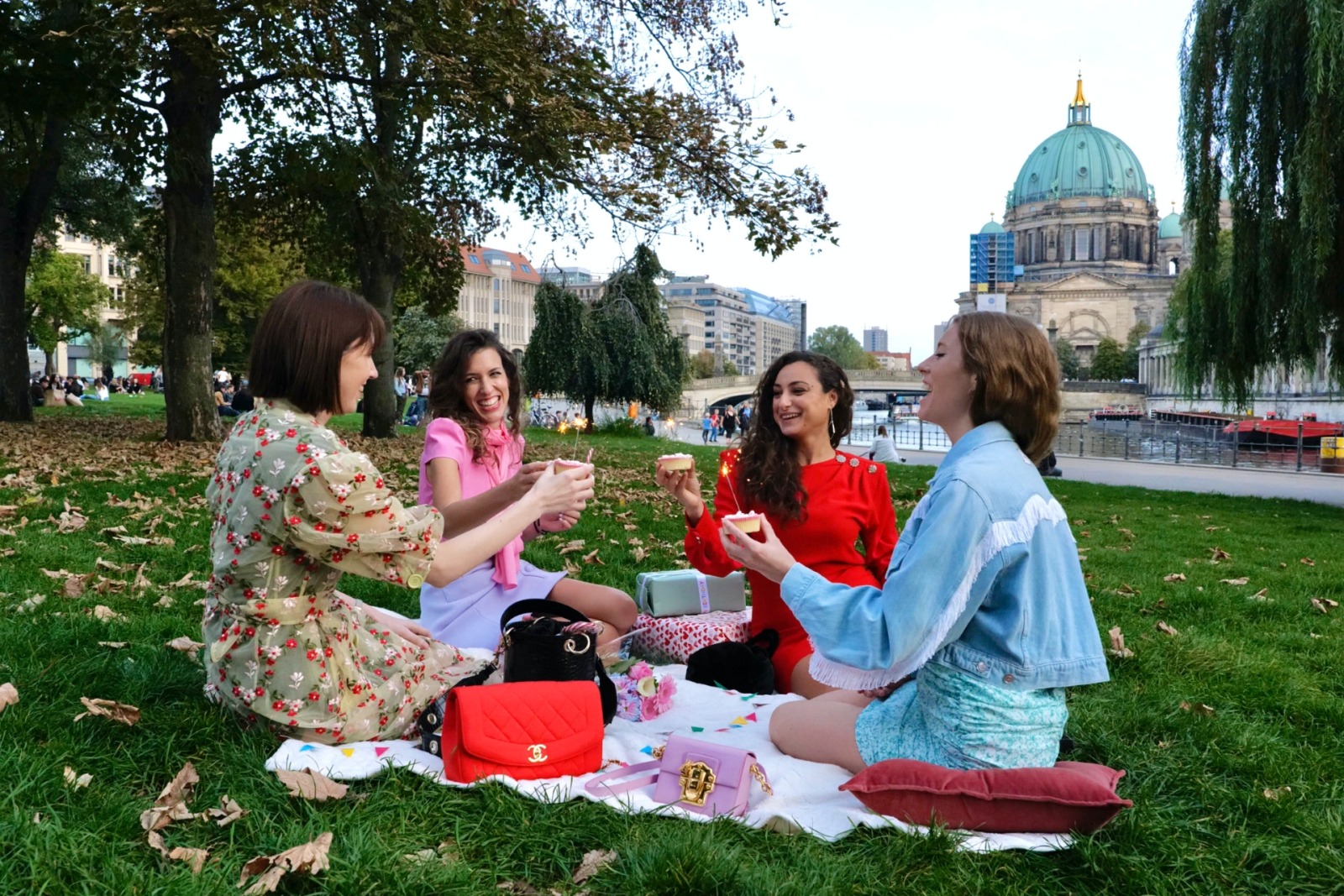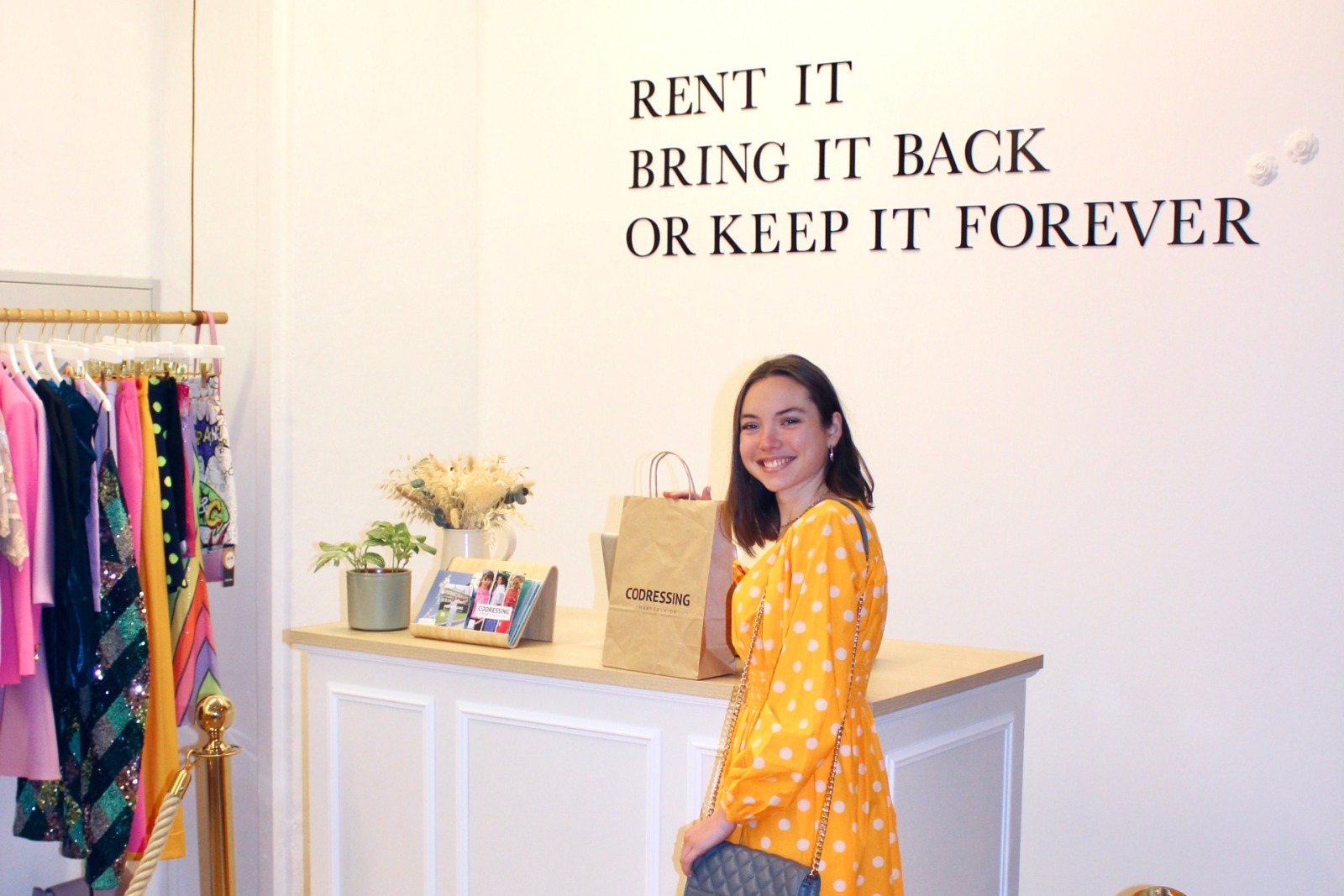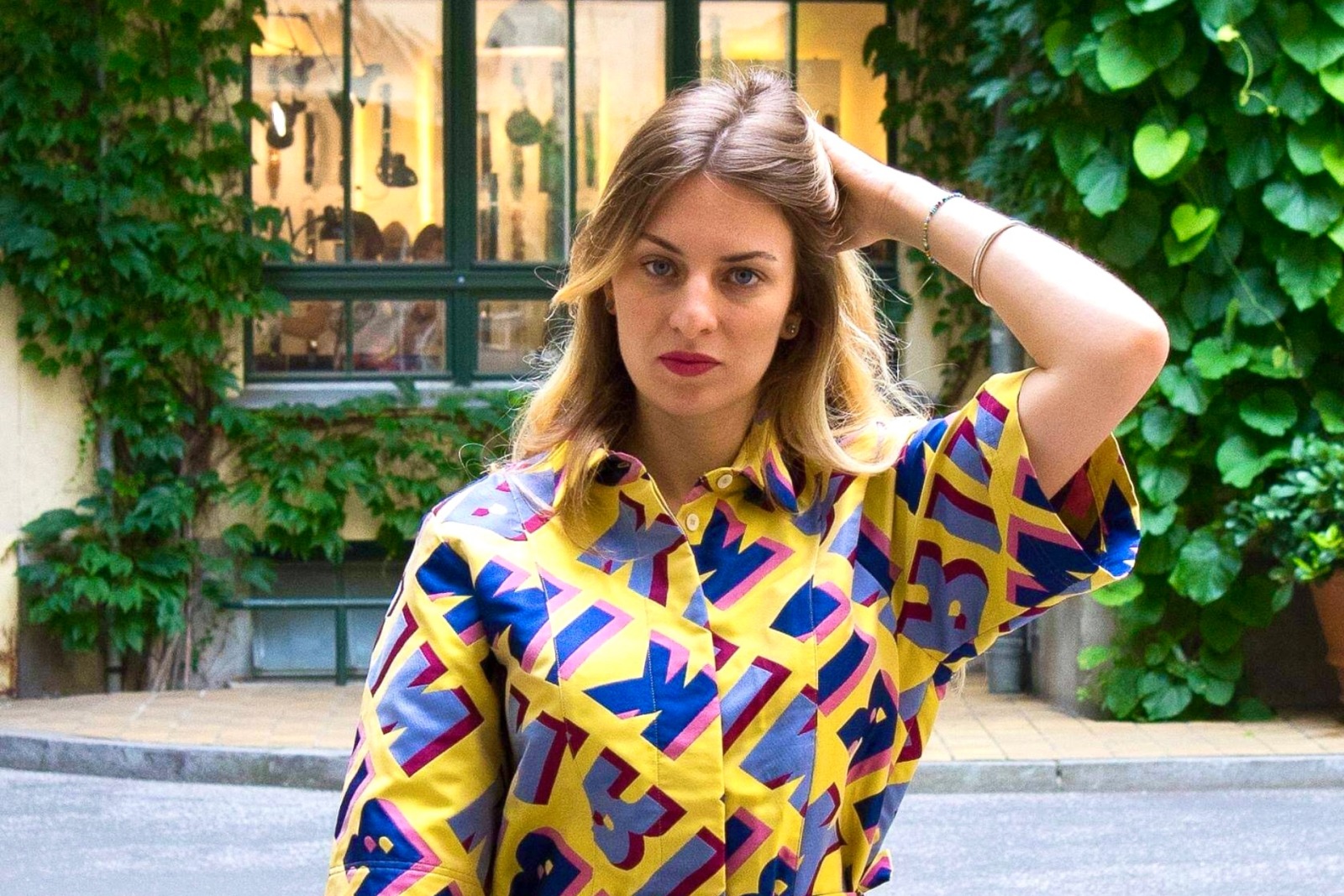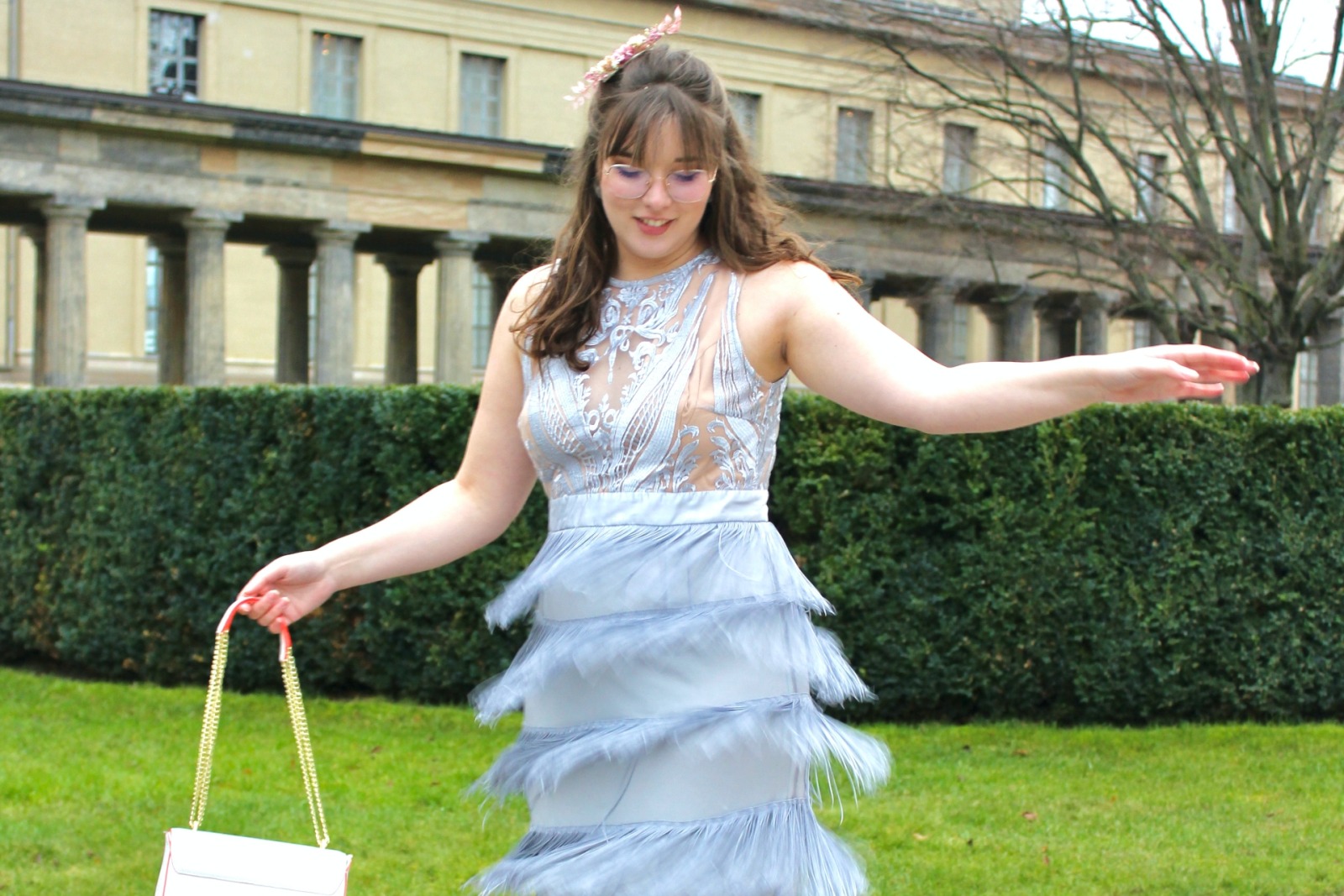Sharing economy: how rental garments work
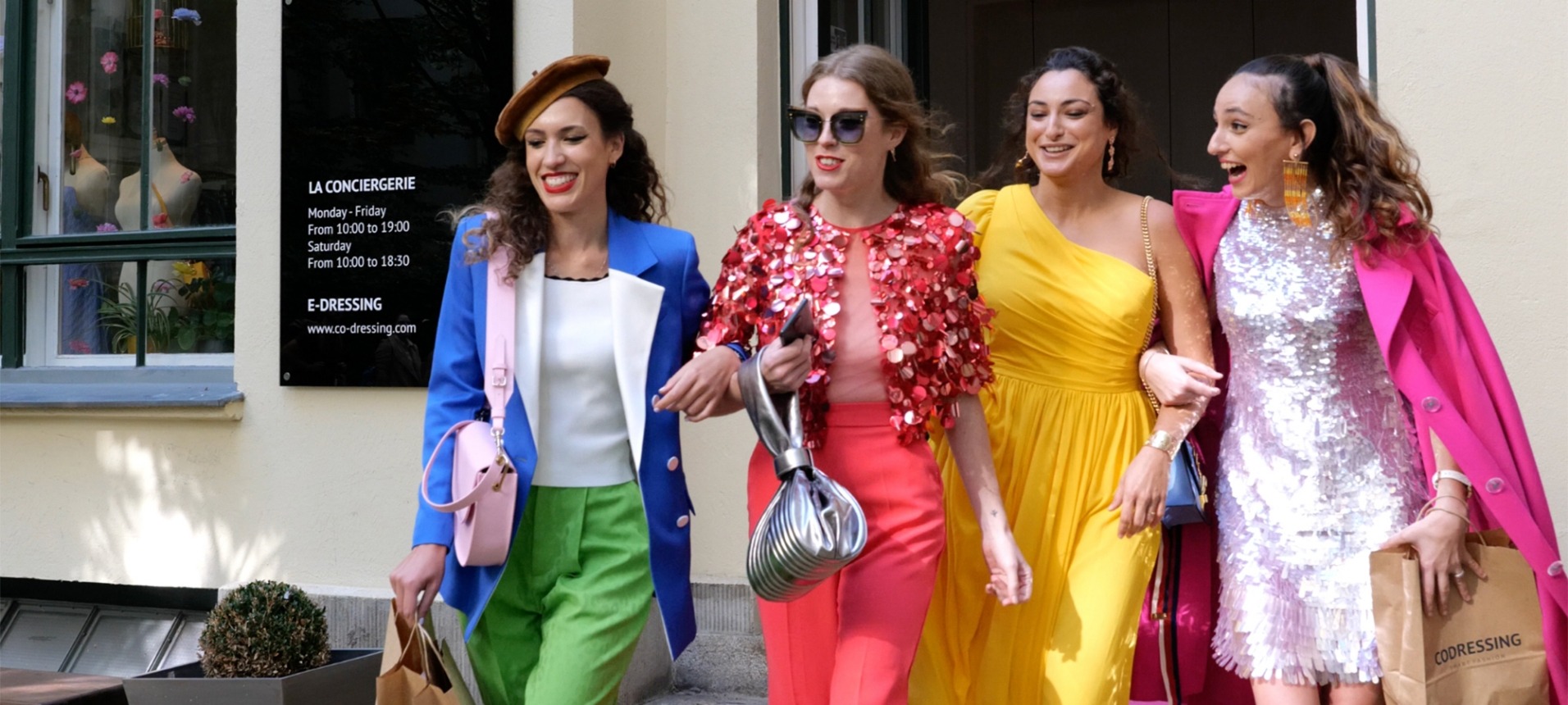
Using instead of owning: The sharing idea is shaking up the economy and is also making its way into the fashion world. Codressing has been active with the concept in Hackesche Höfe since 2020.
There is one figure that keeps coming up in the media: The average person in Germany is said to own 10,000 items. Books and sweaters, cooking pots and tools, cars and smartphones: a huge variety of objects that lie in our closets, drawers, shelves, garages or basements. But we use only part of them in everyday life. And so the question arises as to whether we need to own all these objects – or whether it wouldn’t make more sense to borrow or rent them.
Sharing economy is the name of the trend in which more and more people want to share more and more things. Car sharing, software use via the cloud, apartments via Airbnb or clothing – these days there is nothing that cannot be shared and jointly used.

"I think the sharing idea will also become important in the fashion industry."
Floriane Palussière
Manager of Codressing
The Frenchwoman is the owner of Codressing in Hackesche Höfe. She had previously been involved with the sharing concept for a long time – most recently as a student at the Berlin School of Economics and Law. And because the idea convinced her, she opened Codressing in the middle of Berlin in 2020. The idea is that fashion designers and first-time owners of fashion pieces make their objects available. The customers – as yet, it’s almost exclusively women who come to Codressing – rent these often very high-quality garments for a fee and then return them, or buy them. "Our customers are primarily interested in being able to wear designer fashion for little money," says Floriane Palussière. "If the sustainability aspect is then added, they find that very nice."
Two of five clothes lie around unused
There are now a whole range of ideas for bringing fashion and sustainability together. That’s no easy feat, especially in the textile industry. Most of the clothes bought in Germany originate from China, Turkey and Bangladesh. Pesticides, high water consumption, chemicals in wastewater or high energy consumption accompany the production – and all this for pieces that are usually only worn a few times. Nearly two out of five items of clothing in Germany's closets go virtually unused, Greenpeace has found.

Young women with an affinity for fashion, in particular, opt for the inexpensive exchange of clothing items. Those who like the concept take out a subscription right away to try out up to five items a month. Codressing cleans and repairs the clothes. And at the same time provides a platform for the community to network and exchange or trade pieces with each other. "We don't offer mass-produced items, of course, but selected designer pieces," says Floriane Palussière. She promises her customers a special user experience, which includes trying things out in the store: "It's great that Hackesche Höfe is so centrally located."
Codressing has a lot planned for this year. More subscriptions, more offers directed at men as well, and support from personal shoppers. "And of course we want to explain and communicate our concept better," says Floriane Palussière. After all, the aim is to use more and more objects collectively.
